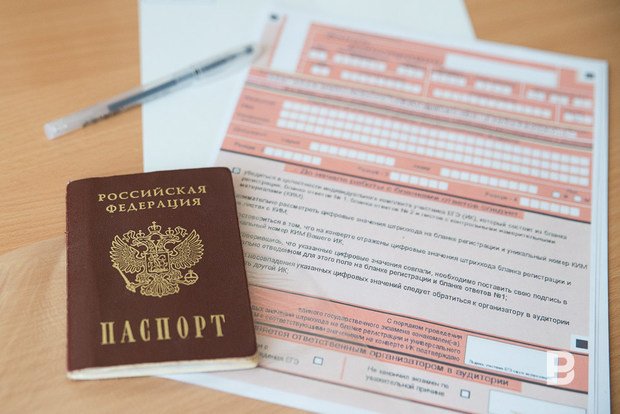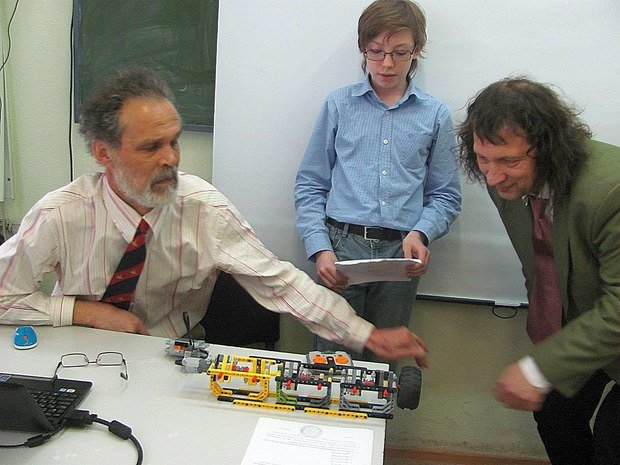''Today both Navalny and United Russia are fighting over children''
Pavel Shmakov, the director of the boarding school Solntse, about the future of the Russian school and how it differs from yesterday's school
How does the Russian school differ from yesterday's school? In what direction is it moving? Director of the boarding school for intellectually enthusiastic children Solntse Pavel Shmakov answers these difficult questions in the author's column, written specially for Realnoe Vremya.
''We need to stop to think… But we have no time. We are in a hurry''
The Russian school of the early 21st century is running forward, after the advanced schools in Europe and the United States. It takes, borrows, adopts everything indiscriminately. We go to Finland — allegedly to adopt the best educational experience. We pay professionals from Singapore huge money — let's train our teachers (they do not care that the mentality of the people in Singapore and our mentality is apples and oranges). We introduce the juvenile justice system. We return Astronomy to the school curriculum… We teach the Tatar language using bad textbooks (and we are dismissing hundreds of teachers. They say that we do not need Tatar in Tatarstan, and Bashkir — in Bashkortostan). We need to stop to think… But we have no time. We are in a hurry.
The last 10 years, just from 2008-2009, all Russian students take the single state exam. The introduction of the exam has changed the Russian school. Here's what Mikhail Zadornov wrote about the exam: ''The exam was introduced in France after the former French colonies in Africa became independent states. African immigrants flooded France… It is because of them they simplified the system of exams, introduced the test system, where the ability to think is replaced by guessing...'' The next in line were the United States. ''America, which well knows how to count profit, quickly get used to the less expensive test system of learning.'' From the USA — to Russia.
Yes, the unified exam in Russia to some extent helped to avoid corruption for admission to universities, allowed to identify in provinces, in places far from major university centres, worthy applicants who previously had no opportunity to take entrance exams in big cities. On the other hand, there are many disadvantages. After the transition from the full exam to tests it excluded the development of the ability to prove, suffer logical and mental skills in general, as well as creativity. Exam in non-linguistic subjects cannot be passed in the languages of the peoples of Russia, except Russian. Russian Language Exam does not replace the final composition: once the status of the composition was very high. Now the composition is back, but still has not returned fully.

''After the transition from the full exam to tests it excluded the development of the ability to prove, suffer logical and mental skills in general, as well as creativity.'' Photo: Maksim Platonov
''Once the Russian school was good in mathematics on the one hand, and on the other — in labour education''
One of the sad features of our school 2018 is the fact that the school is slowly abandoning moral education. School is now a service industry. The current school often trains conditioned reflexes, but do not develop the brain. School is now the place where training is given. Training in some schools is quite good, but such schools are in the minority. But almost all of them refuse moral education! It is wrong. Once the Russian school was good in mathematics on the one hand, on the other hand — in labour education. Today's Russian school believes that parents should be engaged in education. But parents, unfortunately, have no time for it. There are, of course, parents who are engaged in education, but most see their children only in the evenings and on Sundays. The rest of the time parents earn money to have something to eat.
In Russia, people always normally treated work. So that children clean up after themselves, not after everyone, but at least after themselves. But today we now cannot offer children to wash the floor in the classroom where they have just had a class. We can ask, but they have the right to refuse. There is such line in the Federal Law ''On Education'': it is forbidden to use the work that is not provided by the school programme. I understand when they say that children cannot wash toilets or windows on the second floor. But to clean up after themselves? We have a problem with that. It is not provided that students erase the blackboard after them — the teacher does it. Children made a mess — a cleaner cleans. It is wrong, it contradicts the spirit of Russia. It has always been accepted to work.
The law allows to work after aged 14 — with the consent of parents. From aged 13 — with the consent of the guardianship. We, at our school Solntse, more than once wanted to arrange 13-year-olds to work — to help younger students to perform homework. 13-year-olds want to work and earn! But the guardianship of Vakhitovsky and Sovetsky districts of Kazan do not allow. No! We will not allow they say! They don't want to take responsibility. Previously, the state promoted the labour education of children, now — in the face of guardianship – it steps back. Besides, training and production plants have disappeared over these 10-15 years…

''Modern children do not fulfil unreasoned orders''
Ten years ago, children were indifferent to politics. Today, both Navalny and United Russia are fighting over children. Children attend rallies. Children are fearless. Children tell law enforcement authorities what they think. Police officers, who are accustomed to act tough and even cruel to dissidents, do not always know how to deal with arguing with them teenagers. School principals grew up and were brought up in the last century, when there were only two points of view on any socio-political topic — the point of view of the Communist Party and the wrong one. But today children live in a multipolar world. And modern children do not fulfil unreasoned orders.
Today's children, unlike those of the early twenty-first century, live in the world of social networks. And there they talk using obscenities: they do not swear — it is talking. We began to discuss this topic in public, together, at school-wide meetings. Once discussed, two, three, and by the fourth discussion one of the students decided to write a research paper on foul language. And she did. She came to my old school during a break and recorded the number of times children said the f-word and then other words of obscene language. The same she did in Solntse school. It turned out that our children use obscene language seven times less. Children were interested to discuss this situation at a scientific conference, and when we did, obscene language at school became even less. When the taboo is removed, the problem goes away. The world of social media… ''There are more things in heaven and earth, Horatio, than are dreamt of in your philosophy.'' 10-15 years ago we understood what drugs are, what alcohol is, but we could not imagine how different the level of problems in virtual reality is. But today's students live there. And they feel this reality better than most adults.
There is also another interesting difference between the current school and yesterday's school. There have appeared young principals. Modern. Not afraid to take risks. There have appeared teachers, not afraid to work as models, sometimes even advertise underwear (is it good? I will refrain from expressing my own opinion. But the fact remains).
In general, of course, the school is conservative and changes slowly. The known phrase of Napoleon III, pronounced after another plebiscite in France: ''It does not matter how they vote, but it is important how they count.'' Still, polling stations in schools are the right way to ensure that they vote as they should. But Knyaz Kropotkin once ingeniously noticed: ''People are better than institutions.'' Our school is changing for the better thanks to millions of fast-changing and fast-growing children. And in a few more times for ten years, the school will be much better. ''It is a pity only that neither me nor you will live in this beautiful time.''